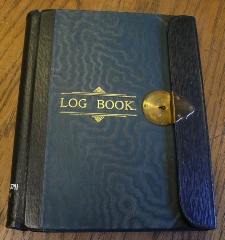Leyton & Leytonstone
Historical Society


Terrorising the public


Projects

Other articles




by David Boote


what head teachers’ ‘school log books’ tell us about the effect of air raids on Leyton and Leytonstone
Leyton was amongst the places hit by the first raids on London, at the end of May 1915. The first airship attack upon Britain had taken place on 19 January 1915 when two Zeppelins dropped bombs on Great Yarmouth, killing four people 1 . Later in the war it was more often planes than airships which attacked the London suburbs. Fatalities, injuries and building damage were the direct result of the raids, but compared with the slaughter of trench warfare these were insignificant. The importance of bombing raids on residential areas was the effect on national morale. This article looks at one source of information, the ‘log books’ developed as a means of monitoring the performance of schools from the 1860s. Waltham Forest Archives at Vestry House Museum hold a number of log books kept during the First World War for schools of Leyton Urban District Council. (Leytonstone was always part of Leyton administratively.)
Variations in the level of attendance by pupils were a principal subject for recording in most log books. Air raids became a new factor. “Owing to the excitement caused by the Zeppelin raid last night many boys had no sleep and consequently did not attend school to-day.” That is an entry in the log book for Harrow Green Boys' School on 1 June 1915. Church Road School noted : “10.9.15 Owing to the Air Raids many children have been kept up until early morning & then allowed to sleep on. This has caused a drop in the attendance.” The same school has an entry for 2 October 1916 : Attendance is very poor this morning owing to so many children being up most of the night.” Leyton Council eventually authorised slightly later opening of schools following a raid. Lea Bridge Road School’s log book notes for 19 February 1918 : “School opened this morning at 9.45am instead of the usual hour, according to notice received from the Education Committee, that following a night air-raid the official time should be altered as above.”
